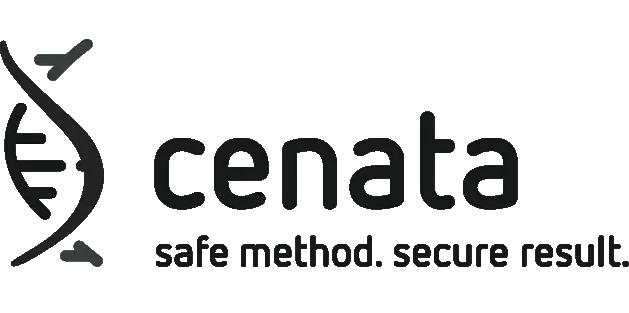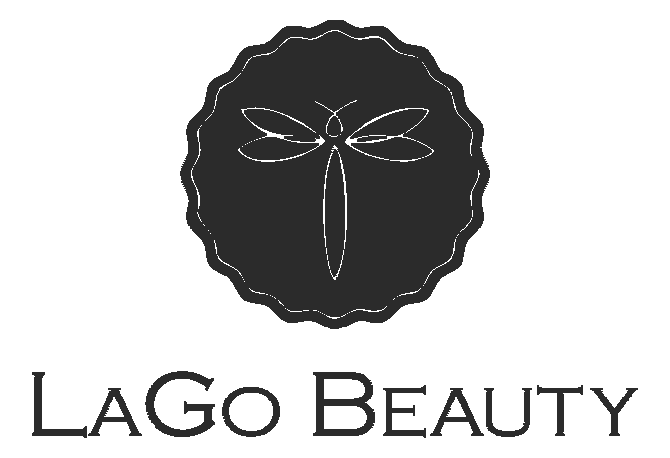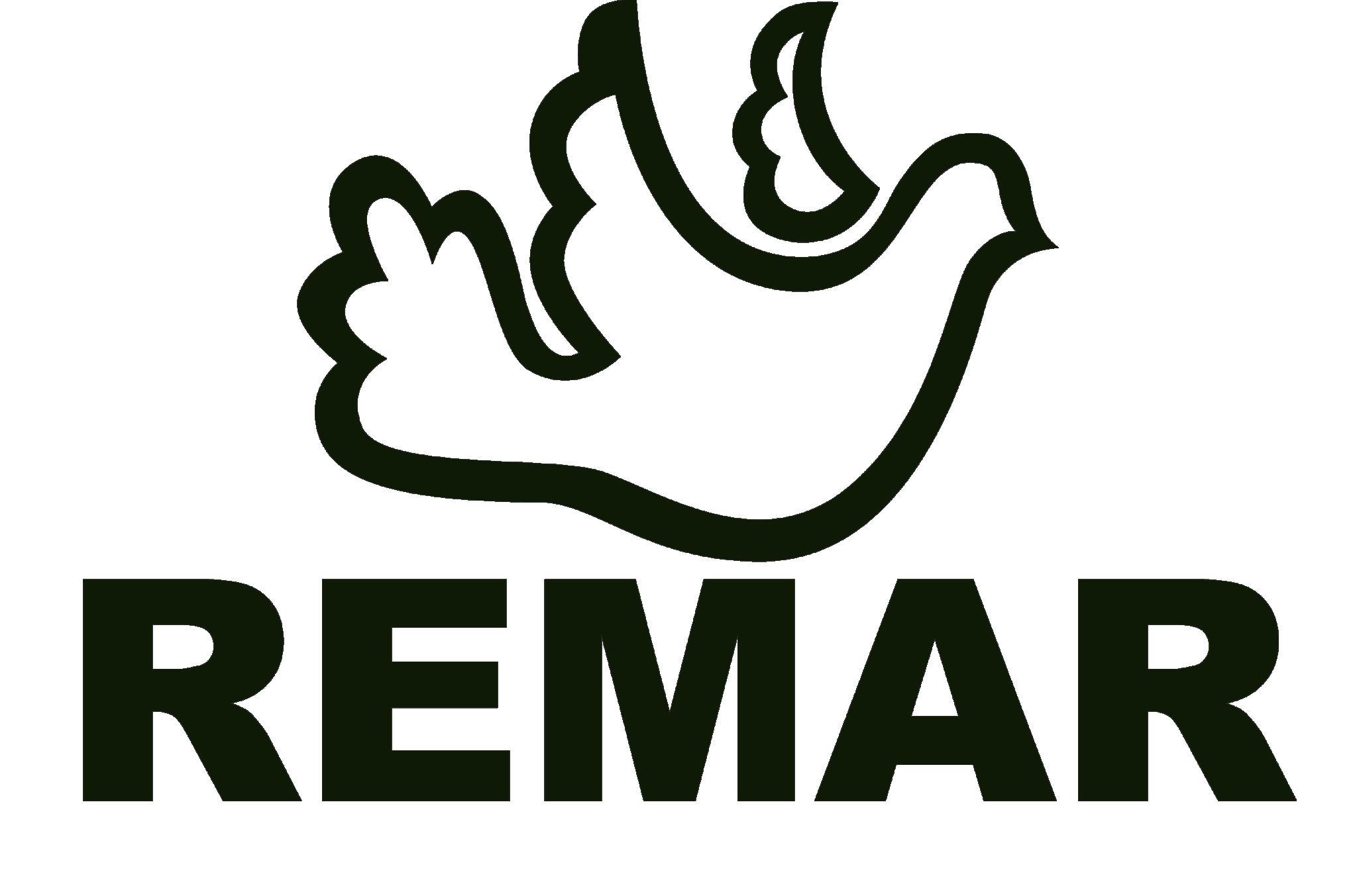SEO – Web design – Google Ads – Social media
Online marketing consulting: your clear path to digital success
We develop customized strategies that reach your target group and deliver measurable results.
Individual marketing solutions
Graphic design
We create modern designs that visually strengthen your brand, create trust and are remembered for a long time.
Website creation
We create modern, search engine optimized websites that convince, create trust and generate leads.
Online stores
We develop sales-boosting online stores that present your products in the best possible way and lead customers directly to a purchase.
Accessibility
We check and optimize your website according to BFSG standards - for legal certainty, greater reach and better SEO.
Certification
We check your website according to over 100 SEO criteria and certify it for top performance and maximum visibility.
Domain & Hosting
We take care of domain, hosting and maintenance - everything from a single source, secure, fast and professionally managed.
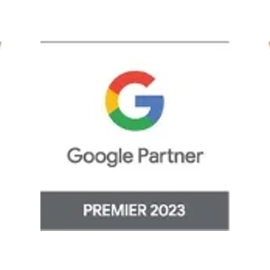

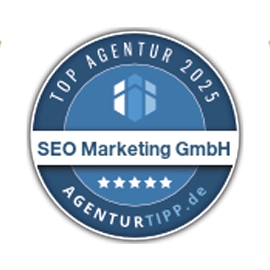

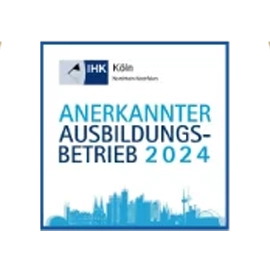
Is your company drowning in digital noise?
The average attention span of an adult today is only 8.2 seconds. With more distractions than ever before, it is all the more difficult to make your target group aware of your company. People communicate online, read the news, store online and much more. So how do you manage to build trust on a medium without personal contact, stand out from the crowd and prove yourself against the ever-growing stream of information on the internet?
This is exactly where SEO Marketing GmbH comes in with professional advice. Instead of blindly trying out different measures, we analyze your individual situation and develop a clear roadmap. We offer you individual solutions for every area of online marketing, regardless of the industry or size of your company.






From invisible provider to digital market leader
The goal is a digital presence that not only exists, but actively contributes to the company’s success. It is about building long-term relationships with your customers and convincing them through authenticity, competence and reliability. Because trust is the hardest currency in online marketing. This is how you reach customers today.
Our job as consultants is to pave the way for you. Through an in-depth analysis of your target group, your market and your competitors, we identify the most effective channels and messages. We then develop a tailor-made strategy that makes optimum use of your resources and brings you closer to your goals.
Strategy instead of actionism: your foundation for sustainable growth
Many companies try out many things in online marketing – sometimes a social media campaign, sometimes Google Ads, sometimes SEO – but often without a clear plan and without measurable results. This actionism burns up budgets and rarely leads to sustainable success. Professional online marketing consulting, on the other hand, creates the strategic basis so that your measures build on each other and have a long-term effect.
A focused strategy that is easy on your budget
We analyze which channels and measures make the most sense for your target group and goals. This allows you to avoid wastage and invest your marketing budget where it has the greatest leverage – for maximum efficiency.
Benefit from external expertise and save time
Instead of familiarizing yourself with complex online marketing disciplines, take advantage of our expertise. We bring in up-to-date knowledge and proven methods so that you can avoid costly mistakes and concentrate on your core business.
A data-based approach for predictable growth
Our consulting is based on analyses and clear key performance indicators (KPIs). We define measurable goals and implement transparent reporting so that you can track and optimize the success of your measures at any time.
Analyze your website for free – more visibility now!
Have your website analyzed free of charge and discover optimization potential immediately. Get a quick SEO check with clear tips for better rankings, more visibility and more customers - free of charge, professionally and without obligation.
Our consulting process: structured, partnership-based, results-oriented
A successful online marketing strategy is the result of understanding, analyzing and planning.

Understand & define goals
We get to know your company, your goals and your target group in detail during an in-depth discussion. This forms the basis of our consultation.

Analysis & potential assessment
We analyze your market, your competitors and your previous online marketing activities. From this, we derive specific opportunities and potential.


Strategy development
We develop a customized online marketing strategy, including a channel mix, budget recommendation and concrete action plan.

Implementation support & control
On request, we can support you during implementation, train your team or help you select suitable service providers. We also establish a controlling system to monitor success.

Ready for an online marketing strategy that really works?
Stop investing your marketing budget in uncertainty. Let’s work together to develop a clear plan for your digital success. Contact us now for a no-obligation initial consultation!
Frequently asked questions about online marketing consulting
What exactly does online marketing consulting involve?
Our online marketing consulting is a strategic service. We analyze your current situation, define realistic goals together with you and develop a tailor-made plan to achieve these goals. This can include selecting the right channels (SEO, SEA, social media, etc.), budget planning, defining target groups or developing content strategies. We provide the roadmap, you decide on the implementation (yourself, with us or other partners).
For which companies does online marketing consulting make sense?
Our consulting services are suitable for companies of any size and in any industry that want to professionalize or realign their online marketing. Companies that are unsure which measures are the right ones, whose previous activities are not delivering satisfactory results or who are looking for an independent expert opinion for their strategy will benefit in particular.
What is the difference between consulting and hiring an agency for implementation?
Consulting focuses on analysis and strategy development – we provide you with the plan. Implementation (e.g. placing ads, writing SEO texts) is an operational service that is often provided by specialized agencies (like us). However, good advice is the basis for any successful implementation, as it ensures that the right things are done.
How is the success of online marketing consulting measured?
Success is measured by the goals that we define together at the beginning. These can be, for example, increasing qualified website inquiries, increasing brand awareness in a specific target group, reducing costs per lead or improving the ROI of certain channels. We define clear KPIs and establish a reporting system to make progress transparent.
Learn more
SEO Marketing
Search engine optimization is our supreme discipline. Our team analyses and optimizes your website and ensures a higher reach and more sales with appealing, search engine-optimized texts! Blog articles, website texts, image descriptions, the text displayed in search results and much more are key factors for your visibility on the Internet. SEO is a long-term alternative to advertising and offers you sustainable success.
Social Media Marketing
Social media marketing is a creative and accessible way to present your company to the public. The platforms and formats vary enormously depending on the target group. This complex interplay of image, video and text material offers you the ideal way to communicate directly with your target group and offer both behind-the-scenes insights into your company and a better understanding of the opinions, preferences and attitudes of your target groups.
Holistic digital marketing
As a holistic marketing company, we offer many different services for successful digital marketing. Together, we clarify your requirements, goals and wishes for your campaign. Your personal contact will share their consulting expertise in an easy-to-understand way and work with you to create an effective strategy for your personal marketing. Whether Google ads, influencer marketing or store websites, these and many other services are available to you for your campaign.
Holistic marketing support
- Detailed marketing advice
- Holistic strategies for your company
- Long-term successes
- One contact for all concerns
What is SEO marketing?
SEO marketing refers to the application of search engine optimization (SEO) in marketing strategies to improve the visibility of a website or online presence in the organic search results of search engines. The goal of SEO marketing is to drive more qualified traffic to the website, increase reach, boost brand awareness and ultimately drive conversions. SEO marketing encompasses a variety of techniques and strategies aimed at improving a website’s search engine ranking and making it more visible for relevant search queries. Here are some important aspects of SEO marketing:
Keyword research and optimization: Thorough keyword research is crucial for successful SEO marketing. It involves identifying relevant keywords or search terms that potential customers might use to search for products or services. These keywords are then strategically integrated into the content, meta tags and other elements of the website to increase its relevance to search engines.
On-page optimization: On-page optimization involves optimizing individual pages of a website to ensure that they are easy to understand and relevant for search engines. This includes incorporating keywords into the title, headings and text, optimizing meta tags and URLs, improving page speed and mobile optimization.
Off-page optimization: Off-page optimization focuses on building backlinks from other high-quality websites to strengthen the authority and relevance of a website. This includes activities such as link building, guest posts, social media engagement and influencer marketing.
Content marketing: Content marketing is closely related to SEO marketing and involves creating high-quality, relevant and engaging content that appeals to the needs and interests of the target audience. By providing valuable and informative content, websites can strengthen their authority in their industry or niche and improve their visibility in search engines.
Technical SEO: Technical SEO is concerned with optimizing technical aspects of a website to ensure that it can be crawled, indexed and ranked efficiently by search engines. This includes improving the website structure and navigation, fixing crawling errors, implementing schema markup and ensuring mobile-friendliness.
Analysis and measurement: Analyzing and measuring SEO performance is critical to evaluate the success of marketing efforts and identify opportunities for improvement. This includes using analytics tools such as Google Analytics to track traffic sources, keyword rankings, conversion rates and other important metrics.
By integrating SEO into their marketing strategy, companies can improve their online visibility and reach, drive more qualified traffic to their website and increase the success of their online marketing activities in the long term.
What is social media marketing?
Social media marketing (SMM) refers to the use of social media platforms and channels to achieve marketing goals and interact with the target group. The aim of social media marketing is to increase brand awareness, encourage user engagement, drive traffic to the website, generate leads and ultimately achieve conversions. SMM encompasses a variety of activities and strategies aimed at strengthening a brand or company’s presence on social media. Here are some important aspects of social media marketing:
Platform selection: Choosing the right social media platforms is crucial for a successful social media marketing strategy. Depending on the target group and industry context, platforms such as Facebook, Instagram, Twitter, LinkedIn, YouTube, Pinterest and TikTok can be used to achieve the desired marketing goals.
Content strategy: A well-thought-out content strategy is the key to success in social media marketing. It involves planning and creating engaging and relevant content that appeals to the target audience and encourages engagement. This includes texts, images, videos, infographics, surveys, stories and live streams.
Community management: Community management involves maintaining and interacting with the target group on social media. This includes replying to comments and messages, engaging in discussions, sharing user-generated content and building relationships with followers and influencers.
Advertising and paid advertising: Social media platforms offer extensive opportunities for advertising and paid advertising to increase reach and target potential customers. These include ads, sponsored posts, promotional videos, influencer marketing and retargeting campaigns.
Analytics and measurement: Analyzing and measuring social media marketing activities is crucial to evaluate success and adjust the strategy accordingly. This includes using analytics tools such as Facebook Insights, Instagram Insights, Twitter Analytics and LinkedIn Analytics to track metrics such as reach, engagement, follower growth, clicks and conversions.
Integration with other marketing channels: Social media marketing should be seamlessly integrated with other marketing channels to ensure a consistent brand message and a holistic customer experience. This includes linking social media with the website, email marketing, content marketing and other digital marketing activities.
By using social media marketing effectively, companies can strengthen their brand presence, encourage interaction with their target audience, drive traffic to their website and ultimately increase conversions and sales. It is a dynamic and versatile marketing discipline that requires continuous adaptation and optimization to be successful.
How can I differentiate my company from the competition in online marketing?
Differentiating your business from the competition in online marketing is critical to standing out in a competitive environment and capturing the attention of your target audience. Here are some strategies to successfully differentiate your business:
Unique value propositions: Identify your company’s unique features, benefits and value propositions and communicate them clearly in your marketing. Emphasize what sets your company apart from the competition and why customers should buy from you.
Niche focus: Specialize in a specific niche or target group in which you are particularly strong and position your company as an expert in this area. By focusing on a specific target group, you can better understand their needs and address them in a more targeted manner.
Unique content: Create high-quality and unique content that emphasizes your expertise and uniqueness. This can take the form of blog posts, videos, infographics, podcasts or other media that appeal to your target group and offer added value.
Personalized customer experience: Provide your customers with a personalized and tailored experience based on their individual needs and preferences. Use data and analytics to develop a better understanding of your customers and provide them with tailored offers and recommendations.
Innovative products or services: Develop innovative products or services that stand out from the competition and offer added value for your customers. Be creative and look for ways to improve existing solutions or offer new solutions that better meet the needs of your target group.
Outstanding customer service: Provide outstanding customer service that goes beyond your customers’ expectations and delights them. Fast response times, personalized attention and a willingness to solve problems can help build customer loyalty and promote positive word of mouth.
Creative marketing strategies: Use creative and unconventional marketing strategies to capture the attention of your target audience and stand out from the crowd. This can include the use of viral marketing, influencer collaborations, guerrilla marketing or other innovative approaches.
Brand identity and story: Develop a strong brand identity and tell a unique company story that evokes emotion and connects with your target audience. A strong brand with a compelling story can leave a lasting impression and promote customer loyalty.
By using these strategies in a targeted manner and continuously working on differentiating your company, you can successfully stand out from the competition in online marketing and achieve long-term success.
Introduction to online marketing consulting
Online marketing consulting is a crucial aspect for companies looking to expand their online presence and optimize their digital marketing strategies. In a world where the internet and digital platforms play a central role in consumer behavior, professional online marketing consulting is becoming increasingly important to secure competitive advantage and promote sustainable growth.
Definition and overview of the role of an online marketing consultant
An Online Marketing Consultant is an expert who helps companies achieve their marketing goals through the use of digital technologies and media. The role of such a consultant involves analyzing the company’s existing marketing strategies, identifying areas for improvement and developing comprehensive strategies based on the latest trends and technologies. The main tasks include planning and implementing campaigns in various online channels such as search engines, social media, email marketing and other digital platforms. The consultant will work closely with the business to ensure that online marketing activities are aligned with the overall business objectives and are implemented efficiently.
Important goals and advantages of using an online marketing consultancy
The goals of online marketing consulting are diverse and are aimed at increasing visibility, improving brand perception and increasing conversion rates. A central goal is the optimization of search engine optimization (SEO) in order to increase organic reach. Also important is maximizing the effectiveness of paid advertising campaigns through targeted pay-per-click (PPC) management. In addition, the consultancy aims to improve customer loyalty through strategic content marketing and targeted social media marketing.
The benefits of using such consultancy services are significant. Firstly, it provides access to expert knowledge and the latest technologies, which is particularly beneficial for smaller companies that may not have the resources to maintain a large marketing team of their own. Secondly, professional analysis and optimization of online marketing strategies leads to a more efficient use of budget and often a higher ROI (return on investment). Thirdly, strategic consulting enables better targeting, as campaigns can be tailored specifically to the needs and behavior of the target customers.
Overall, online marketing consulting offers companies the opportunity to refine their digital campaigns, strengthen their online presence and ultimately accelerate their business growth. By adapting to digital trends and consumer behavior, companies can successfully compete in an increasingly digitalized world.
Analysis of the target group
Analyzing your target audience is a fundamental step in any successful online marketing strategy. Without a deep understanding of who the potential customers are, it becomes difficult to create effective marketing campaigns that resonate and convert. This analysis helps companies personalize and optimize their marketing efforts by presenting relevant content and offers that are specifically tailored to the needs and preferences of their target audience.
Importance of target group analysis for effective online marketing
Target group analysis enables marketers to gain a clear picture of the demographic characteristics, interests, behaviors and needs of their potential customers. This information is crucial for developing strategies that are precisely tailored to the target group. By understanding which channels the target audience uses, when they are most active and what types of content resonate best, companies can deploy their marketing resources more efficiently and increase user interaction and engagement. In addition, precise target group analysis helps to minimize wastage and optimize advertising spend by only serving ads to those who are most likely to be interested and convert.
Methods and tools for identifying and analyzing the target group
Demographic analysis: This involves collecting data on the age, gender, education level, occupation and income of the target group. Tools such as Google Analytics provide comprehensive insights into the demographic characteristics of website visitors.
Psychographic analysis: This involves researching the lifestyles, attitudes, interests and values of the target group. Surveys and market research tools such as SurveyMonkey or Qualtrics can provide valuable services here.
Behavioral analysis: The analysis of purchasing behavior, usage behavior and interaction patterns with the brand. Analytics platforms such as Google Analytics or Adobe Analytics provide detailed data on how users interact with a website or app.
Geographic analysis: Understanding where the target audience lives and tailoring marketing efforts to specific geographic regions. Geotargeting in Google Ads and Facebook Ads can help to target campaigns regionally.
Use of social media insights: Platforms such as Facebook Insights and Twitter Analytics offer deep insights into the preferences and activities of users on these platforms. This information can be used to better tailor content to the interests of the target group.
Persona development: Creation of detailed buyer personas that represent representative patterns within the target group. This helps to tailor marketing messages and offers even more specifically to the needs and wishes of potential customers.
By using these methods and tools, companies can develop an in-depth understanding of their target group, which in turn forms the basis for effective and targeted online marketing. This not only leads to higher conversion rates, but also to stronger customer loyalty and ultimately to sustainable business growth.
SEO (search engine optimization)
Search engine optimization (SEO) is a crucial aspect of digital marketing that aims to improve the visibility of a website in the organic search results of search engines such as Google. SEO is crucial as it helps companies drive more traffic to their websites without having to pay for advertising directly.
The basics of SEO and its importance for online visibility
SEO encompasses a variety of techniques and practices aimed at designing and optimizing a website so that it is considered relevant and important by search engines. The basics of SEO include both “on-page” and “off-page” factors. “On-page” factors refer to aspects of your website such as the quality of the content, the structure of the website, the use of keywords and the user experience. “Off-page” SEO, on the other hand, refers to external signals, in particular backlinks from other websites.
The importance of SEO stems from its ability to increase a website’s visibility, which leads directly to increased traffic and potentially more business. Websites that appear on the first page of search results receive a significantly higher proportion of clicks compared to websites that are listed further down.
Tips and strategies for improving search engine rankings
Keyword research and optimization: Understand what terms your target audience uses when searching for your products or services. Use these keywords in your titles, headings, content and URLs to improve the relevance of your website for these search queries.
Increase content quality: Create high-quality, relevant and informative content that answers the questions and needs of your target group. Search engines prefer content that provides in-depth information on a topic.
Mobile optimization: Make sure your website works well on mobile devices, as more and more users are accessing the internet via smartphones. Websites that are optimized for mobile devices are preferred by search engines.
Improve loading times: Fast loading times improve the user experience and are rated positively by search engines. Optimize images, use browser caching and minimize the response time of the server.
Backlink building: Get high-quality backlinks from trustworthy websites in your industry. Backlinks are an important factor for search engines to assess the authority and credibility of your website.
Use of meta tags: Optimize meta tags, such as the title tag and meta description, to clearly and precisely describe what visitors can expect on the respective page. This can also improve the click-through rate in search results.
Regular analysis and adjustment: Use tools such as Google Analytics and Google Search Console to monitor the success of your SEO efforts and to find out where improvements are needed.
By implementing these strategies, companies can improve their SEO and increase their visibility in search engines. This not only leads to more website visits, but also to increased conversion rates and ultimately to greater business success.
Content Marketing
Content marketing is a fundamental pillar of online marketing that is crucial for building a strong digital presence and fostering long-term customer relationships. High-quality content plays a central role here, as it not only serves to increase visibility in search engines, but also to strengthen the engagement and trust of the target group.
Importance of high-quality content for online marketing
High-quality content is the key to attracting the attention of potential customers and convincing them. It offers added value and solves problems, which strengthens a brand’s credibility and authority online. Search engines like Google reward quality content that helps users by positioning it higher in search results. This leads to increased organic traffic, a lower bounce rate and improved conversion rates. In addition, good content helps to build a relationship with customers and guide them through the customer journey, which ultimately increases customer retention and loyalty.
Strategies for planning and creating target group-relevant content
Target group analysis: Before you start creating content, you need to understand who your target group is, what they need and what challenges they face. Use demographic analysis tools, surveys and social listening to gain insights into the preferences and behavior of your target audience.
Develop a content strategy: Set clear goals for your content marketing and determine how these goals can be achieved through different content formats, e.g. blog posts, videos, infographics, podcasts or e-books. Plan topics that are not only relevant but also useful for your target group.
Keyword research: Integrate SEO practices by identifying relevant keywords that your target audience uses. These keywords should be incorporated naturally into your content to improve its visibility in search engines.
Create an editorial calendar: Organize the production and publication of your content with an editorial calendar. Plan posts in advance to ensure consistency and cover relevant topics at the optimal time.
Content creation: Produce high-quality content that is informative and engaging. Use clear, concise and grammatically correct language that effectively conveys your message. Use appealing visual elements to complement the text and improve readability.
Content promotion: Don’t just rely on organic reach. Use social media, email marketing, PPC advertising and other channels to make your content accessible to a wider audience.
Measurement and analysis: Use analytics tools to monitor the performance of your content. Pay attention to metrics such as page views, dwell time, engagement rates and conversion rates to measure success and identify areas for improvement.
By implementing these strategies, companies can ensure that their content marketing not only increases visibility, but actually resonates with their target audience, leading to stronger customer loyalty and ultimately greater business success.
Social Media Marketing
Social media marketing is an indispensable part of modern marketing, enabling companies to interact directly with their target groups, create brand awareness and promote customer loyalty. Each platform offers unique opportunities and challenges that require a specific approach.
Overview of different platforms and their specific requirements
Facebook: With its broad user base, Facebook is ideal for large-scale marketing campaigns. The platform supports a variety of content formats such as text, images, videos and live streams. Facebook is particularly valuable for its detailed targeting options, which allow advertisers to reach very specific target groups.
Instagram: This platform is highly visual and ideal for brands that want to use strong visual content to drive engagement. Instagram Stories and IGTV offer additional opportunities for interaction. Success on Instagram relies heavily on aesthetics and the ability to capitalize on trends.
Twitter: Twitter is suitable for fast, timely communication and is particularly effective for customer service and engagement through current events or trends. Tweets have a short lifespan, so the frequency of posts is more important than on other platforms.
LinkedIn: This platform is ideal for B2B communication. LinkedIn promotes professional content and networking and is particularly valuable for content marketing and lead generation in a business environment.
TikTok: A relatively new platform that is particularly popular with younger audiences. TikTok is known for its short, creative videos and offers companies the chance to go viral by creating entertaining and trendy content.
Best practices for effective marketing on social media
Understand your target audience: Understand who your target audience is on each platform. Use demographic data and user behavior to create content that resonates.
Content planning: Develop a coherent content plan that takes various formats into account – from text and image contributions to videos and live streams. Take into account the specific strengths of each platform.
Regularity and consistency: Post regularly to stay present with your followers. Stick to a consistent posting schedule to meet audience expectations and maximize engagement.
Encourage interaction: Social media is dialog-oriented. Respond to comments, questions and feedback. Use functions such as surveys or Q&A sessions to encourage interaction.
Measurement and customization: Use analytics tools to monitor the performance of your content. Pay attention to metrics such as engagement rate, reach and conversions. Adjust your strategy based on these findings.
Visual consistency: Maintain consistent visual branding across all platforms to ensure brand recognition.
By implementing these best practices, companies can optimize their social media presence and communicate effectively with their target audience, leading to increased engagement, stronger customer loyalty and ultimately greater business success.
E-mail marketing
Email marketing remains one of the most effective communication and marketing tools available to companies. It provides direct and personalized communication channels to existing and potential customers and plays a central role in comprehensive marketing strategies. However, email marketing also brings with it specific challenges that companies need to address to ensure the success of their campaigns.
Advantages of e-mail marketing
High ROI: Email marketing offers one of the highest returns on investment among marketing channels. According to various studies, every dollar invested in email marketing can generate a much higher amount in return.
Targeted personalization: Emails can be tailored to the specific needs and interests of individual recipients, increasing the relevance and effectiveness of communication.
Measurability: Email campaigns provide detailed insights into recipient behavior, including open and click-through rates, allowing marketers to accurately analyze performance and adjust strategies accordingly.
Direct communication: E-mail enables direct and immediate communication with the recipient, which can be particularly advantageous for time-critical offers and messages.
The challenges of email marketing
Overloaded inboxes: Many users receive a flood of emails every day, making it difficult to attract attention and stand out from the crowd.
Spam filters: Strict spam filters can prevent legitimate marketing emails from reaching their recipients.
Design requirements: Emails must be designed in such a way that they are easy to read on all devices, especially mobile devices, which requires technical expertise.
Tips for creating successful email campaigns
Clear and appealing subject lines: The subject line should grab the recipient’s attention and make it clear what to expect when they open the email.
Use personalization: Go beyond simply addressing users by their first name and segment your email lists to personalize content based on their interests and behavior.
Perform A/B tests: Test different elements of your emails (such as subject lines, call-to-actions, images, etc.) to find out what works best and continuously improve results.
Offer valuable content: Every email should offer clear value to the recipient, whether through informative content, entertainment or special offers.
Clearly define the call to action: Every email should contain a clear call to action that shows the recipient what they should do next.
Optimization for mobile devices: Make sure your emails are optimized for viewing on mobile devices, as the majority of users read emails on their smartphones.
Regularity and timing: Pay attention to the frequency and timing of your emails to maximize engagement rates without flooding recipients.
By considering these benefits and challenges and following these tips, companies can optimize their email marketing strategies and achieve their goals more effectively.
Pay-Per-Click (PPC) and other paid forms of advertising
Pay-Per-Click (PPC) advertising is one of the most prominent forms of digital marketing that allows businesses to place their ads on search engines and other digital platforms and only pay when their ads are clicked on. This type of advertising plays an essential role in the online marketing mix as it provides a quick and effective way to drive visibility and traffic to specific offers or pages.
Explanation of PPC and its role in the online marketing mix
PPC is an efficient and controllable method of targeting audiences who are actively searching for specific products, services or information. The most common platforms for PPC advertising are Google Ads and Bing Ads, which allow advertisers to place ads in search engine results. Social media platforms such as Facebook, Instagram and LinkedIn also offer PPC options, which are particularly valuable due to the detailed demographic and psychographic targeting options.
PPC is an essential part of the online marketing mix because it is used to complement other forms of marketing such as SEO, content marketing and social media strategies. While SEO aims to generate organic traffic, PPC offers immediate visibility and can help to quickly achieve short-term goals, such as promoting a limited-time offer or achieving specific sales targets.
Strategies for optimizing paid advertising campaigns
Keyword research and selection: Choosing the right keywords is crucial to the success of PPC campaigns. Use tools such as Google Keyword Planner to find relevant and effective keywords that have a high search intent and an acceptable level of competition at the same time.
Refine audience targeting: Use the advanced targeting options offered by PPC platforms to target your ads to the users most likely to convert. This includes geographic, demographic and device-based targeting.
Optimize landing pages: Make sure the landing pages your PPC ads link to are optimized to maximize conversions. This means that they load quickly, are mobile-friendly and contain a clear call-to-action.
Run A/B tests: Test different elements of your ads, including headlines, description text and call-to-actions, to find out which combinations achieve the highest click-through and conversion rates.
Manage budget and bids: Monitor your campaigns regularly to ensure your budget is being used efficiently. Adjust bids to maximize visibility for high-value keywords and minimize costs for underperforming ones.
Analyze and adjust performance: Use analytics tools such as Google Analytics to monitor the performance of your PPC campaigns. Analyze key metrics such as CTR (click-through rate), CPC (cost per click) and conversion rate to identify areas for improvement and adjust your strategy accordingly.
By implementing these strategies, companies can optimize their PPC campaigns and not only increase their visibility and traffic, but also achieve a higher ROI.
Web analytics and data analysis
Web analytics and data analysis are crucial elements for success in online marketing consulting. The systematic collection, analysis and interpretation of data enables companies to make informed decisions, optimize marketing strategies and ultimately achieve their business goals more efficiently.
The importance of data in online marketing consulting
Data is the backbone of any effective online marketing strategy. It provides objective insights into audience behavior and preferences, the effectiveness of different marketing channels and the overall performance of online activities. By analyzing this data, companies can not only optimize their campaigns for maximum efficiency and effectiveness, but also better understand how users interact with their brands. This enables continuous improvement of customer targeting, optimization of customer engagement and ultimately an increase in conversion rates.
Introduction to common analysis tools and interpretation of data for strategy adjustment
Google Analytics: One of the most widely used web analytics tools that provides comprehensive data on website visitors, traffic sources, user behavior and conversions. Google Analytics enables companies to monitor and analyze the performance of their websites, identify visitor segments and optimize the user experience.
Facebook Insights: Provides detailed analytics about the interactions on a Facebook page. These insights help to understand which types of content work best, how reach can be increased and how the audience reacts to different posts.
Adobe Analytics: Another powerful tool that provides deeper insights into customer behavior across different channels. It is particularly suitable for larger companies that require detailed reports and analyses of their digital marketing activities.
Hotjar: A tool that provides heatmaps, session replays and surveys to understand how users experience a website and where there is potential for improvement.
SEMrush: Provides insights into the performance of SEO, PPC and social media campaigns. It is particularly useful for analyzing visibility in search engines and the performance of paid advertising campaigns.
Interpretation of data for strategy adjustment
Data must not only be collected, but also interpreted correctly in order to gain valuable insights for adjusting the marketing strategy. Here are some basic steps for data interpretation:
Set goals and KPIs: Clearly define what you want to achieve and which key performance indicators (KPIs) will measure this. This could be, for example, increasing traffic, improving the conversion rate or increasing the average length of stay.
Segmentation of data: Analyze data segmented by different criteria such as demographics, behaviors or traffic sources to gain more specific insights into different user groups.
Trend analysis: Monitor the development of KPIs over time to identify trends, patterns and anomalies.
A/B testing: Carry out controlled tests to find out which strategies or changes deliver the best results.
Action-oriented steps: Develop concrete action plans to optimize your online marketing strategies based on the analysis results.
By using common analytics tools and interpreting data effectively, companies can improve their online marketing efforts and adapt them to the ever-changing needs of their target audience. This leads to more efficient campaigns, better resource allocation and ultimately a higher ROI.
Conversion Rate Optimization (CRO)
Conversion rate optimization (CRO) is a crucial process in digital marketing that aims to increase the percentage of visitors to a website who take a desired action, such as making a purchase, filling out a form or signing up for a newsletter. CRO encompasses a variety of techniques and methods to improve the user experience and maximize the likelihood of conversions.
Techniques and methods for increasing conversion rates
A/B testing: By testing two versions of a web page or a specific element on a page, you can find out which variant leads to higher conversion rates. This can relate to anything from the color of a call-to-action button to different layouts of a landing page.
Improve user-friendliness (usability): An intuitive and easy-to-navigate website promotes conversions. This includes clear navigation elements, fast loading times and a display optimized for mobile devices.
Optimizing user experience (UX): Improvements in UX can be achieved by designing emotionally appealing pages, providing relevant content and creating an overall pleasant user experience.
Clear call-to-actions (CTAs): Clear and eye-catching calls to action are crucial to guide users and encourage them to take the desired actions.
Personalization: Adapting content and offers based on users’ interests and behavior can increase relevance and improve conversion rates.
Build trust: Elements such as customer reviews, seals of approval, privacy policies and secure payment options help to build user trust.
Important metrics and benchmarks for measuring success
Conversion rate (CR): This is the percentage of website visitors who complete a desired action. The average conversion rate can vary depending on the industry and type of conversion, but it provides valuable insight into the effectiveness of the website.
Cost per conversion: This metric helps to understand how much it costs to achieve a conversion. It is particularly important for the budgeting of paid campaigns.
Bounce rate: The rate at which new visitors leave the site without interacting can indicate problems with the initial user experience.
Average Order Value (AOV): Increasing AOV can often be more effective than simply increasing the number of conversions and offers a direct route to increasing sales.
Abandonment of the checkout process (cart abandonment rate): A high cart abandonment rate during the checkout process may indicate problems in the purchase process that should be addressed.
Implementing effective CRO methods and continuously monitoring relevant metrics enables companies to constantly optimize their websites and get the most out of their traffic. This not only enables them to increase their revenue, but also to develop a deeper understanding of their customers’ needs and behavior.
Trends and the future of online marketing
The field of online marketing is constantly evolving, driven by technological advances, changing consumer behaviors and new strategic approaches. It is crucial for companies to understand and anticipate these trends in order to remain competitive and make the most of the opportunities that arise.
Current trends in online marketing
Artificial intelligence and machine learning: AI and ML are increasingly being used in various areas of online marketing, from personalized customer experiences and automated customer interactions to the optimization of advertising campaigns. These technologies enable companies to analyze large amounts of data and create more precise customer profiles and behavioral predictions.
Voice Search Optimization: With the increasing use of voice assistants such as Alexa, Siri and Google Assistant, optimizing for voice search is becoming more and more important. Companies need to ensure that their content is optimized for voice search to remain visible in this growing segment.
Video marketing: Video continues to be a dominant medium in online marketing, led by platforms such as YouTube, TikTok and Instagram. Live streaming is also becoming increasingly popular as it allows brands to interact with their audience in real time.
Influencer marketing: Despite some challenges, influencer marketing remains an effective tool, especially with younger audiences. The authenticity and reach that influencers provide are valuable, especially when traditional advertising methods become less effective.
Sustainability and ethical marketing: Consumers increasingly value sustainability and ethical behavior from brands. Online marketing campaigns that reflect these values can improve the brand image and strengthen customer loyalty.
Outlook on future developments and technologies in online marketing
Augmented reality (AR) and virtual reality (VR): These technologies are just beginning to influence online marketing. They offer new opportunities for interactive and immersive customer experiences, which can be used in e-commerce and digital advertising in particular.
Data privacy and data security: With increasing concerns about data privacy, transparency and data protection are becoming important topics in online marketing. Compliance with regulations such as the GDPR is not only becoming a legal requirement, but also an important trust factor for customers.
Taking personalization to a new level: Advances in data analysis and AI will make it possible to create even more individual customer experiences. Personalization will go beyond simple product suggestions and could include customized website experiences.
Integration of online and offline channels: The future of online marketing will see even greater integration of online and offline channels to create seamless customer experiences. This could be facilitated by technologies such as the Internet of Things (IoT) that bridge the two worlds.
Blockchain technology: Although mainly known for cryptocurrencies, blockchain has the potential to revolutionize online marketing by providing more transparency in advertising delivery and measurement.
These trends and future developments show that online marketing is continuing to evolve rapidly. Companies that can stay on the cutting edge of technology and adapt will be best positioned to benefit from these changes.
Get in touch with us!
Do you want more visibility, more leads and sustainable growth? Then we are the right partner for you!
Whether you have questions, would like advice or want to get started right away - we look forward to getting to know you and starting your digital mission together.
Just write to us or give us a call - we are here for you!







